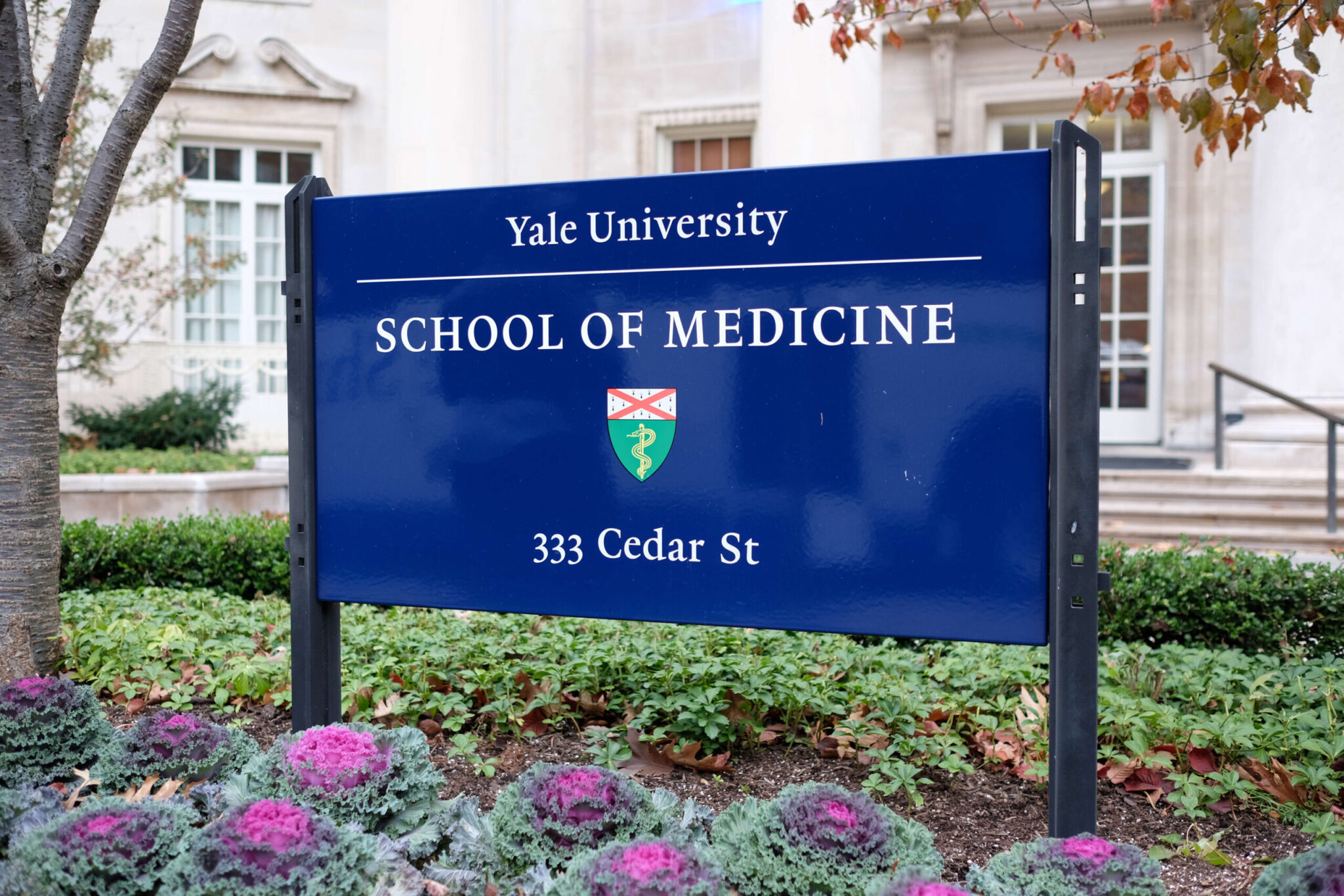Blood tests reveal biological markers of long COVID, according to Yale and Mount Sinai study
The study identified hormonal dysfunction, immune system exhaustion and reactivation of dormant viruses as key factors in long COVID everywhere.

Eric Wang, Contributing Photographer
Long COVID patients may be one step closer to understanding the biological causes behind their symptoms.
Researchers at the Yale School of Medicine and Mount Sinai Hospital have identified significant biological markers associated with Long COVID. The team analyzed blood samples of participants with varying COVID-19 exposure histories and Long COVID statuses. Published in “Nature” on Monday, the study identified hormonal dysfunction, exhaustion of certain cells within the immune system and the reactivation of latent viruses as key factors in Long COVID.
“I believe the results of this study will help patients in many ways,” Akiko Iwasaki, Sterling Professor of Immunobiology and a lead author of the study, wrote to the News in an email. “We provide evidence that Long COVID is a biological disease, with immune and hormonal dysregulation that underlie its pathogenesis.”
In the study, the researchers divided participants into five distinct groups, each with varying histories of COVID-19 exposure and different Long COVID statuses. The Mount Sinai team, led by David Putrino, recruited participants from Long COVID clinics within the Mount Sinai Healthcare System. Participants experiencing LC underwent thorough medical evaluations, which according to the researchers, was intended to ensure that alternative medical conditions were not causing their persistent symptoms.
According to Putrino, the team excluded roughly half of the participants who applied because the researchers determined that these participants were not suffering from Long COVID. Putrino said these participants had not fully recovered from initial COVID-19 infections.
“They would say ‘Yeah, I’m fully recovered, but I can’t go to the gym anymore,’” Putrino said. “And we would ask, ‘Why can’t you go to the gym?’ ‘Because every time I go to the gym, I crash.’ That’s not fully recovered.”
Once enrolled in the study, all participants provided blood samples and completed symptom surveys on the same day as their sample collection. Additionally, researchers collected self-reported medical histories from all participants in the study.
According to Putrino, the team discovered three signals associated with LC: hormonal dysfunction, an exhausted immune system and the reactivation of latent viruses.
The study found that people with LC experience significantly lower morning cortisol levels — which help wake the body up — compared to healthy individuals.
According to Putrino, cortisol levels rise around 3 a.m. and trigger the brain to wake up around 6 a.m. or 7 a.m. LC patients’ extreme fatigue and difficulty starting their day can partially be explained by the lower cortisol levels. Their symptoms tend to improve in the afternoon, only to repeat the cycle after sleep.
The study also found that LC patients have exhausted immune systems. Blood samples showed higher activated B and cytokine-secreting T cells in LC patients. B cells are responsible for generating antibodies that help fight infections. If higher levels of antibodies to a protein associated with COVID-19 are present, the immune system is likely actively fighting an infection, which could suggest persistence of SARS-CoV-2 — the virus that causes COVID-19 — in LC patients.
The researchers also observed elevated levels of cytokine-secreting T cells — cells that help coordinate immune responses — in LC patients. Separately, they identified T cells nearing a state of exhaustion after combating an unknown threat for an extended period.
Finally, the study found evidence of recent reactivation of latent viruses in the body, such as Epstein-Barr Virus and various herpes viruses, in LC patients. While the immune system had previously controlled these viruses, according to the study’s findings, the LC patients’ weakened immune systems may have allowed the viruses to return.
“These viruses are saying, ‘these T cells are starting to get depleted, the B cells are distracted with something else, let’s party,” Putrino said.
One section of the self-reported medical history evaluation assessed whether patients previously suffered from anxiety or depression. Crucially, the researchers found no disparities in the pre-existing history of depression or anxiety between those who have never reported having COVID-19, those with COVID-19 but not Long COVID, and those with Long COVID. Additionally, the study did not find evidence that the three objective biomarkers co-occur with any mental health issues measured in the study, which the researchers argue can help to dispell belief that LC is a purely psychiatric condition.
Still, the researchers noted that the study has certain limitations. Only 273 people took part in the study, and researchers only recruited participants from LC centers. Additionally, the study focused on peripheral immune factors, even though they claim that LC often presents with organ-specific dysfunctions.
Putrino said that he and his team hope to conduct further research and deepen their understanding of the study’s key findings, including the significant difference in morning cortisol levels between groups. He noted that they are currently organizing a broader investigation into cortisol patterns throughout the day.
“The study is a good, broad picture of where are going to be the next best places to look for further studies,” Dr. Rahul Dhodapkar ’15 MED ’24, one of the study’s first authors, said.
Patients collectively created the phrase “Long COVID” in the early months of the pandemic.
Correction, Oct. 4: Three paragraphs in the article have been updated to more accurately reflect specific scientific terminology derived from the study.







